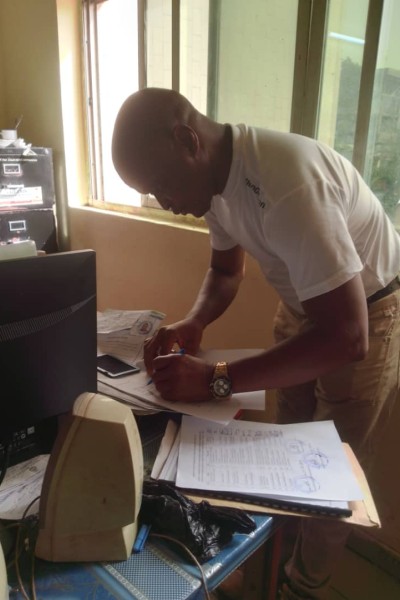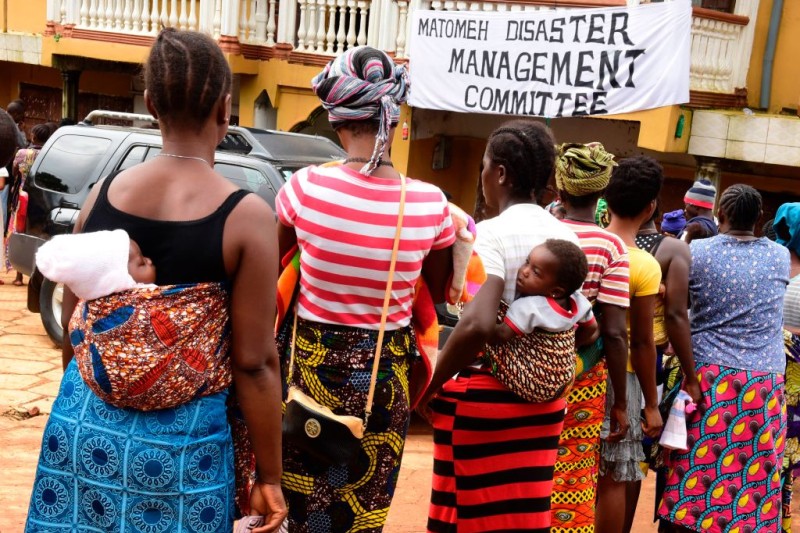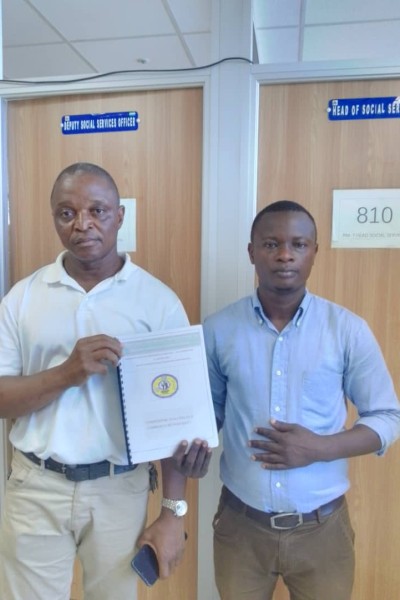Bournemouth University Research Integral to Development of Sierra Leone’s New National Constitution for Local Disaster Management Committees
The findings and methodology of a disaster management research project conducted by BU experts has been incorporated into a national disaster management constitution in Sierra Leone.
The Evaluating Local Disaster Management in Sierra Leone (EVALDIS) project, based at Bournemouth University Disaster Management Centre (BUDMC) in the Business School, has been cited and included in the new national constitution governing the workings and collaboration of local community disaster management committees (CDMCs) across Sierra Leone, encompassing wards across all 16 districts and five provinces of the country, and potentially covering over 8.4 million people.
The national constitution was first formalised through registration in January 2024 at governmental offices in Freetown. It represents Sierra Leone’s first-ever formal national association of CDMCs, giving guidance and strengthening the organisational resilience of local CDMCs and the way they respond to crises in their wards.
The new constitution of the CDMC – Sierra Leone (CDMC – SL) association seeks to facilitate the capacity of local disaster management committees to enhance the resilience of local communities in preparing for, responding to, and recovering from crises and disasters.
Mohamed Sahid Conteh, National Administrative Secretary General of the CDMC-SL organisation, commented, “The registration of this national constitution marks a major step change in the formal organisation, collaboration, and capacities of the CDMCs in Sierra Leone. This is significant since the CDMCs involve many of the leaders, actors and volunteers in the local communities that play a critical role in the practical responses to emergencies and disasters at the local level that are become even more common due to climate change.”
The research and technical assistance was led by BU’s Professor Lee Miles, and the EVALDIS project is now formally recognised within the national constitution, giving an evidence-base and allowing for ongoing collaboration to help prevent and manage disasters to minimise impact and potential loss of life.
Mohamed Sahid Conteh continued, “We highly value the technical assistance and cooperation of Professor Lee Miles and the EVALDIS project that has ensured that the new national constitution is based on the best available and current knowledge pertaining to local disaster management in Sierra Leone. Once more Professor Miles is having notable societal impact on practical disaster management in our country and helping our local communities in very practical ways”.
The national constitution incorporates BU research into single points of failure (SPOF) as well as a toolkit for the analysis of disasters to ensure that lessons are learned and incorporated into future planning and response. The national constitution also outlines the institutional vision and mission, core principles, aims and objectives, membership, scope, structure, and range of activities. It seeks to enhance and formalise cooperation at the local level of wards and districts, involving community leaders, volunteers, and citizens.
Daniel Bob Jones, the CDMC-SL National Chairman said, “The national constitution provides the basis for the organisation to further help communities improve their resilience through, for example, provisions on increased education and training in disaster management, in combination with our valued international partners like Bournemouth University. The involvement of our CDMCs in the work of EVALDIS project also shows how the best research takes account of the everyday perspectives of local communities and can give something back to them.”
Professor Lee Miles, Professor of Crisis and Disaster Management and Deputy Dean of the Business School, explained, “For any researcher, our primary concern is conducting research that responds to real-world needs and provides impact for people. Working with partners in Sierra Leone has ensured that the extensive knowledge we have on disaster management is being applied in the context of the specific, often societal, needs of the country. Namely, to create plans to help local people prepare for disasters and outline the right tools to enable them to respond quicker and recover better from disasters.
“The work that we have done in Sierra Leone could not have been possible without the input of the National Disaster Management Agency (NDMA) and Freetown City Council (FCC), as well as representatives of the local CDMCs. We give them our thanks for letting us work with them to provide solutions they need. The SPOF research is now an embedded methodology that many partners consider valuable when dealing with disasters in Sierra Leone.”




